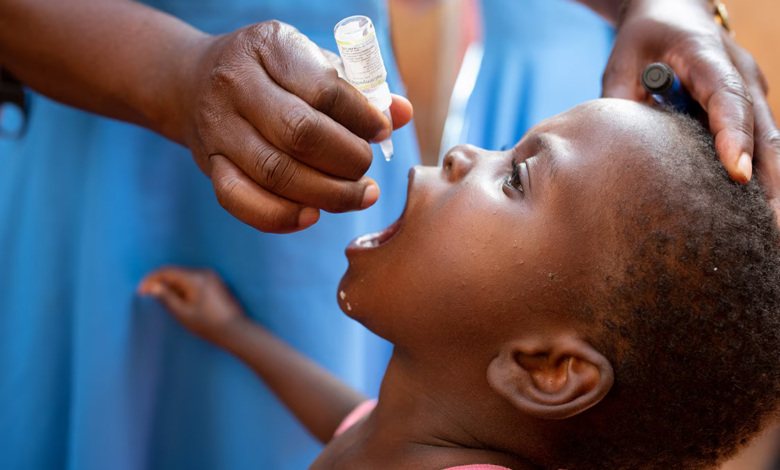Armed Conflicts Hindering Vaccination of Over 165, 000 Children in DR Congo
The territories of Opala, Ubundu, the rural council of Lubunga and the Yakusu zones are particularly affected by the bloody conflict between the Mbole and Lengola communities.

Over 165,000 children in the Tshopo province of the Democratic Republic of Congo (DR Congo) have not been vaccinated. The children face the danger of various health hazards linked to non-vaccination.
According to health officials of the Expanded Programme on Immunisation who visited the province on Monday, Jan. 20, over 101,000 children have not completed their vaccination circle.
The primary reason for the under-vaccination is the prevalent insecurity in the province. Stephane Itekama, provincial coordinator of the Enlarged Programme on Immunisation, says the territories of Opala, Ubundu, the rural council of Lubunga and the Yakusu zones are particularly affected by the bloody conflict between the Mbole and Lengola communities.
The Opienge region in the Bafwasende territory is also faced with frequent clashes between armed groups. Aside from these factors, floods and the intensification of mining activities aggravate the situation because health infrastructures have been essentially destroyed amid the displacement crisis battling the region.
“We are faced with the emergence of illnesses which are evitable through vaccination. For this year, the province has recorded about six cases of poliomyelitis in our different territories including even the town of Kisangani. There have been measles epidemics too,” Stephane Itekama revealed.
The official called for the amelioration of vaccination coverage and appealed to the administrative and political authorities for action.
Over 165,000 children in the Tshopo province of DR Congo have missed vaccinations, with 101,000 not completing their vaccination cycle. The prevalent insecurity in the region, particularly due to conflicts between the Mbole and Lengola communities and clashes between armed groups in various territories, contributes to the vaccination gap.
Additionally, infrastructural damage from floods and mining activities exacerbates the issue, leaving the region vulnerable to vaccine-preventable diseases like poliomyelitis and measles. Provincial health coordinator Stephane Itekama urges improved vaccination coverage, calling for action from administrative and political authorities.
Support Our Journalism
There are millions of ordinary people affected by conflict in Africa whose stories are missing in the mainstream media. HumAngle is determined to tell those challenging and under-reported stories, hoping that the people impacted by these conflicts will find the safety and security they deserve.
To ensure that we continue to provide public service coverage, we have a small favour to ask you. We want you to be part of our journalistic endeavour by contributing a token to us.
Your donation will further promote a robust, free, and independent media.
Donate HereStay Closer To The Stories That Matter




